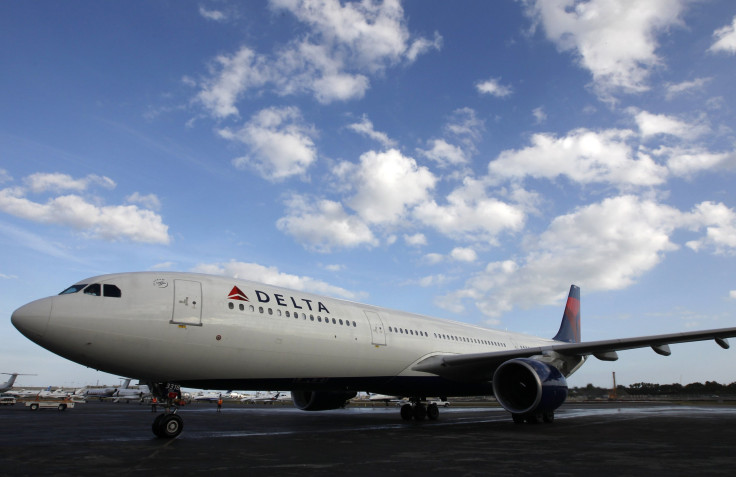Delta Air Lines Inc (DAL) Earnings Preview 2013: Q3 Profit Up 50% On Strong Revenue And Low Costs

Delta Air Lines Inc (NYSE:DAL), the world’s second-largest airline after United Continental Holdings Inc. (NYSE:UAL) is expected to report a 50 percent increase in earnings per share as a result of strong third-quarter unit revenue and lower-than-expected costs.
The Atlanta-based company will report third-quarter earnings on Tuesday. Analysts expect Delta’s net income to rise 10.6 percent to $1.11 billion from $768 million in the year-earlier quarter, while earnings per share are seen increasing to $1.35 from 90 cents per share, according to a Thomson Reuters survey.
Revenue is projected to rise 5.4 percent to $10.5 billion from $9.92 billion. Excluding one-time items, analysts expect earnings per share of $1.37 compared with $1.23 in the third quarter of last year.
Delta is the industry leader at the moment and everyone’s darling, and the company’s updates on monthly adjusted revenue per available seat mile (PRASM), an important measure of revenue for airlines, did not disappoint in the third quarter. Delta’s PRASM grew 3 percent in July, 4 percent in August and 5.5 percent in September. That month is especially notable, as the company said Atlantic and domestic regions performed well, the former being the region that United claimed to have negatively affected its revenue in the same month.
“Delta cited strength in its Atlantic and Domestic entities, the former of which we believe was intended to assuage investor concern following United commentary from last week,” J.P. Morgan analyst Jamie Baker wrote in a research note.
Delta’s third-quarter PRASM increased approximately 4 percent, a stronger growth than any other network carrier except US Airways. While peak season leisure demand wound down and the company continues to face pressure from a falling yen, strong business demand and Delta’s capacity-management measures likely boosted third-quarter results.
Delta has also taken care to keep its costs down in the third quarter. In 2012, the company acquired a refinery complex in Trainer, Pa., from Phillips 66 with plans to exchange non-jet fuel produced at the refinery for crude oil and jet fuel. This investment is starting to pay off in 2013 and overall oil prices are also going down this year. As a result, Delta reported earlier this month that its adjusted fuel price will fall below the earlier projection to just $2.98 to $3.03 per gallon.
Non-fuel costs stayed level as well. Delta's projections at the beinning of the third quarter estimated that excluding fuel and profit-sharing its costs would likely rise by 0 to 2 percent thanks to ongoing cost reductions.
Delta’s guidance put third-quarter adjusted operating margin at 11 to 13 percent and analysts are confident the company will meet or exceed this expectation. It looks like Delta will stay the industry leader for quite some time, according to J.P. Morgn's Baker.
Baker's note took a bit of a jab at Delta rival UAL Corp, which owns United Airlines and is scheduled to report earnngs Monday as well. "… Certain investors continue to view United as 'the next Delta,' United fundamentals appear to suggest a different reality at least for now, hence we’d respectfully suggest that Delta is actually the next Delta.”
© Copyright IBTimes 2024. All rights reserved.











